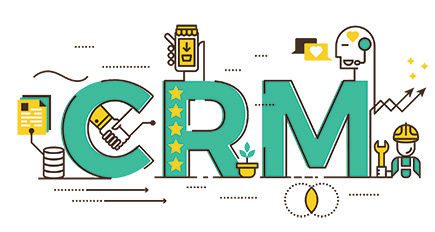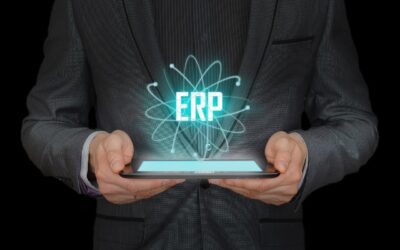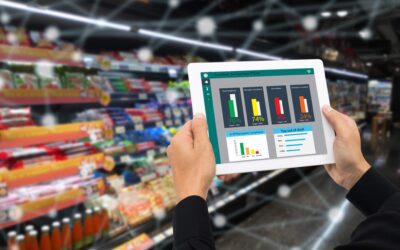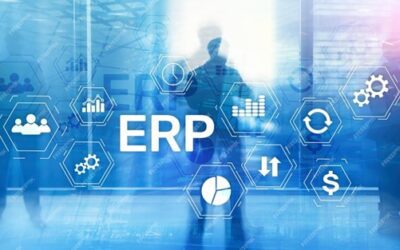
Introduction to Customer Relationship Management (CRM) and its importance
Customer Relationship Management (CRM) is a vital aspect of any successful business. It involves managing and nurturing relationships with customers to drive customer satisfaction and loyalty. A well-implemented CRM strategy can help businesses understand their customers’ needs, personalize interactions, and improve overall customer experience. In today’s competitive landscape, where customer expectations are higher than ever, businesses need robust tools and systems to manage their customer relationships effectively.
What is an ERP system and how it relates to CRM
An Enterprise Resource Planning (ERP) system is a comprehensive software solution that integrates various business functions such as finance, human resources, supply chain, and customer service into a single, unified system. It provides companies with a centralized platform to manage their day-to-day operations and make informed business decisions. While CRM focuses specifically on managing customer relationships, an ERP system complements CRM by providing a holistic view of the entire customer journey.
Benefits of using an ERP system for CRM
Integrating an ERP system with CRM brings numerous benefits to businesses. Firstly, it allows for better data management and accessibility. With an ERP system, customer data from various touchpoints such as sales, marketing, and customer service can be consolidated into a single database, providing a unified view of the customer. This enables businesses to gain valuable insights into customer behavior, preferences, and purchase history, which can be leveraged to deliver personalized experiences.
Secondly, an ERP system streamlines business processes, enabling faster and more efficient customer service. By automating routine tasks and workflows, businesses can respond to customer inquiries and resolve issues in a timely manner. This not only improves customer satisfaction but also enhances productivity and reduces operational costs.
Lastly, integrating CRM with an ERP system promotes collaboration and communication across different departments. Sales, marketing, and customer service teams can share real-time information and collaborate seamlessly, leading to better coordination and a more consistent customer experience.
The role of an ERP system in enhancing customer relationships
An ERP system plays a crucial role in enhancing customer relationships by providing businesses with the necessary tools and capabilities to deliver exceptional customer experiences. One of the key aspects of CRM is understanding customer needs and preferences. An ERP system enables businesses to capture and analyze customer data, such as demographics, purchase history, and feedback, to gain insights into customer behavior. This information can then be used to tailor products, services, and marketing campaigns to meet individual customer requirements.
Furthermore, an ERP system enables businesses to provide proactive customer service. With real-time access to customer data, businesses can anticipate customer needs and address issues before they arise. For example, if a customer’s preferred product is out of stock, an ERP system with inventory management capabilities can automatically notify the customer when it becomes available again. This proactive approach not only enhances customer satisfaction but also fosters loyalty and repeat business.
Additionally, an ERP system facilitates seamless order management and fulfillment. By integrating CRM with inventory management and accounting functionalities, businesses can streamline the entire order-to-cash process. This ensures accurate and timely order processing, reduces errors, and enables businesses to deliver products or services promptly. A smooth order management process contributes to a positive customer experience and builds trust with customers.
Key features of an ERP system for CRM, including inventory management and accounting
An ERP system designed for CRM purposes offers a range of key features that are essential for managing customer relationships effectively. One such feature is inventory management, which allows businesses to track and manage their inventory levels in real-time. By integrating inventory data with CRM, businesses can ensure timely fulfillment of customer orders, avoid stockouts, and minimize carrying costs. This enables businesses to meet customer demands accurately and efficiently.
Another important feature of an ERP system for CRM is accounting. Integrating CRM with accounting functionalities provides businesses with a comprehensive view of customer financial information. This includes invoicing, payment history, and credit limits. By having access to this information, businesses can make informed decisions regarding credit extensions, discounts, and payment terms, which can help improve cash flow and strengthen customer relationships.
Furthermore, an ERP system for CRM often includes marketing automation capabilities. This feature enables businesses to automate marketing campaigns, track customer responses, and measure campaign effectiveness. By automating repetitive marketing tasks and personalizing interactions, businesses can engage with customers more effectively and nurture long-term relationships.
Xorosoft ERP: An overview of the ERP solution and its capabilities
Xorosoft ERP is a leading ERP solution that offers a comprehensive set of features to enhance customer relationships. It is designed to streamline business operations, improve productivity, and drive customer satisfaction. Xorosoft ERP integrates seamlessly with CRM systems, providing businesses with a unified platform to manage customer relationships and deliver personalized experiences.
One of the key strengths of Xorosoft ERP is its robust inventory management system. It allows businesses to track inventory levels in real-time, manage multiple warehouses, and automate replenishment processes. With accurate and up-to-date inventory data, businesses can ensure product availability, avoid stockouts, and fulfill customer orders promptly.
Another standout feature of Xorosoft ERP is its advanced accounting capabilities. It enables businesses to manage financial transactions, generate accurate financial reports, and automate billing processes. By integrating accounting with CRM, businesses can have a comprehensive view of customer financial information, enabling them to make informed decisions and provide personalized financial services to customers.
Additionally, Xorosoft ERP offers powerful marketing automation tools. Businesses can automate marketing campaigns, segment customers based on their preferences and behaviors, and track campaign performance. This allows businesses to deliver targeted marketing messages, nurture leads, and drive customer engagement.
How Xorosoft ERP can improve customer relationships through its CRM functionalities
Xorosoft ERP’s CRM functionalities are designed to enhance customer relationships and drive customer satisfaction. By integrating CRM with other modules such as inventory management and accounting, Xorosoft ERP provides businesses with a comprehensive view of customer interactions and enables personalized experiences.
For example, Xorosoft ERP’s inventory management system allows businesses to track customer preferences and purchase history. This information can be used to anticipate customer needs, recommend relevant products, and provide personalized offers. By tailoring products and services to individual customers, businesses can enhance customer satisfaction and build long-term loyalty.
Furthermore, Xorosoft ERP’s accounting capabilities enable businesses to provide personalized financial services to customers. By integrating CRM with accounting, businesses can offer flexible payment terms, credit extensions, and personalized pricing. This not only strengthens customer relationships but also improves cash flow and reduces credit risk.
Moreover, Xorosoft ERP’s marketing automation tools enable businesses to deliver targeted marketing campaigns and nurture leads effectively. By automating repetitive marketing tasks and personalizing interactions, businesses can engage with customers at every touchpoint and build meaningful relationships.
Implementing an ERP system for CRM: Best practices and considerations
Implementing an ERP system for CRM requires careful planning and consideration. Here are some best practices to ensure a successful implementation:
-
Define clear goals and objectives: Clearly define what you want to achieve with the ERP system and how it aligns with your CRM strategy. This will help guide the implementation process and ensure that the system meets your business requirements.
-
Involve key stakeholders: Engage key stakeholders from different departments, including sales, marketing, and customer service, in the implementation process. Their input and expertise are crucial for a successful implementation and adoption of the system.
-
Ensure data accuracy and integrity: Clean and accurate data is essential for effective CRM. Before implementing the ERP system, ensure that your existing data is cleansed, standardized, and migrated correctly to the new system. This will prevent data quality issues and ensure a smooth transition.
-
Provide comprehensive training and support: Proper training and ongoing support are essential for user adoption and system utilization. Make sure to provide comprehensive training to all users and offer ongoing support to address any questions or issues that may arise.
-
Monitor and measure performance: Regularly monitor and measure the performance of the ERP system. This includes tracking key metrics such as customer satisfaction, sales growth, and operational efficiency. By analyzing these metrics, you can identify areas for improvement and make informed decisions.
Conclusion: The future of CRM and the role of ERP systems in driving customer satisfaction
In conclusion, customer relationship management (CRM) is crucial for businesses to succeed in today’s competitive market. An ERP system complements CRM by providing a unified platform to manage customer relationships effectively. By integrating CRM with inventory management, accounting, and marketing automation functionalities, an ERP system enhances customer relationships and drives customer satisfaction.
Xorosoft ERP is a leading ERP solution that offers a comprehensive set of features to improve customer relationships. Its robust inventory management, advanced accounting, and powerful marketing automation capabilities enable businesses to deliver personalized experiences and nurture long-term customer relationships.
Implementing an ERP system for CRM requires careful planning, stakeholder involvement, and data accuracy. By following best practices and considering key factors, businesses can successfully implement an ERP system and reap the benefits of enhanced customer relationships.
The future of CRM lies in leveraging the power of ERP systems to gain deeper insights into customer behavior, automate processes, and deliver personalized experiences at every touchpoint. As customer expectations continue to evolve, businesses need robust tools like Xorosoft ERP to stay competitive and drive customer satisfaction.
Book a Demo with Xorosoft to learn how their ERP solution can empower your business and enhance your customer relationships.









